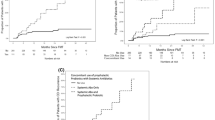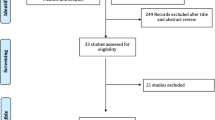Abstract
Background
Fecal microbiota transplantation (FMT) is a highly effective therapy for recurrent Clostridioides difficile infection (CDI); however, a small percentage of patients fail to achieve cure even after two FMTs. This high-risk cohort remains poorly understood.
Methods
We performed a multicenter, multinational retrospective review of patients that underwent at least one FMT for a CDI indication at four academic FMT referrals. Patients’ data including CDI, FMT, and FMT variables were assessed. The primary outcome was FMT failure after a second FMT defined as persistent diarrhea and positive laboratory test for C. difficile (PCR or toxin) despite a second FMT within 8 weeks of the first FMT. A multivariable logistic regression model was performed to determine predictors of second FMT failure.
Results
A total of 540 patients received at least one FMT during the study period, of which 432 patients had success following the first FMT, 108 had documented failure (25%). Among those who failed the first FMT, 63 patients received a second FMT, of which 36 achieved cure, and 24 had documented failure after the second FMT. Patients that failed the first FMT but did not receive a second FMT and those lost to follow-up were excluded leaving 492 patients included in the analysis. The second FMT failure rate was 4.8% (24/492). Risk factors for second FMT failure identified by multivariable logistic regression included: inpatient status (OR 7.01, 95% CI: 2.37–20.78), the presence of pseudomembranes (OR 3.53, 95% CI: 1.1–11.33), and immunocompromised state (OR 3.56, 95% CI: 1.45–8.72) at the time of first FMT.
Conclusion
This study identifies clinically relevant risk factors predictive of failing a second FMT. Clinicians can use these variables to help identify high-risk patients and provide a better-informed consent regarding the possibility of needing multiple FMTs.
Similar content being viewed by others
References
Leffler DA, Lamont JT. Clostridium difficile infection. N Engl J Med.. 2015;373:287–288.
Ma GK, Brensinger CM, Wu Q, Lewis JD. Increasing incidence of multiply recurrent Clostridium difficile infection in the United States: a cohort study. Ann Internal Med.. 2017;167:152–158.
Cammarota G, Masucci L, Ianiro G, et al. Randomised clinical trial: faecal microbiota transplantation by colonoscopy vs. vancomycin for the treatment of recurrent Clostridium difficile infection. Aliment Pharmacol Ther.. 2015;41:835–843.
Lee CH, Steiner T, Petrof EO, et al. Frozen vs fresh fecal microbiota transplantation and clinical resolution of diarrhea in patients with recurrent Clostridium difficile infection: a randomized clinical trial. Jama.. 2016;315:142–149.
Satokari R, Mattila E, Kainulainen V, Arkkila PE. Simple faecal preparation and efficacy of frozen inoculum in faecal microbiota transplantation for recurrent Clostridium difficile infection–an observational cohort study. Aliment Pharmacol Ther.. 2015;41:46–53.
Fischer M, Kao D, Kelly C, et al. Fecal microbiota transplantation is safe and efficacious for recurrent or refractory Clostridium difficile infection in patients with inflammatory bowel disease. Inflamm Bowel Dis.. 2016;22:2402–2409.
Kelly CR, Khoruts A, Staley C, et al. Effect of fecal microbiota transplantation on recurrence in multiply recurrent Clostridium difficile infection: a randomized trial. Ann Intern Med.. 2016;165:609–616.
van Nood E, Vrieze A, Nieuwdorp M, et al. Duodenal infusion of donor feces for recurrent Clostridium difficile. N Engl J Med.. 2013;368:407–415.
Drekonja D, Reich J, Gezahegn S, et al. Fecal microbiota transplantation for Clostridium difficile infection: a systematic review. Ann Intern Med.. 2015;162:630–638.
Fischer M, Kao D, Mehta SR, et al. Predictors of early failure after fecal microbiota transplantation for the therapy of Clostridium difficile infection: a multicenter study. Am J Gastroenterol.. 2016;111:1024–1031.
Surawicz CM, Brandt LJ, Binion DG, et al. Guidelines for diagnosis, treatment, and prevention of Clostridium difficile infections. Am J Gastroenterol.. 2013;108:478–498. (quiz 499).
Fischer M, Sipe B, Cheng YW, et al. Fecal microbiota transplant in severe and severe-complicated Clostridium difficile: a promising treatment approach. Gut Microbes.. 2017;8:289–302.
Weingarden AR, Hamilton MJ, Sadowsky MJ, Khoruts A. Resolution of severe Clostridium difficile infection following sequential fecal microbiota transplantation. J Clin Gastroenterol.. 2013;47:735–737.
Fischer M, Rex DK, Sipe BW. Letter: faecal microbiota transplantation in combination with fidaxomicin to treat severe complicated recurrent Clostridium difficile infection–authors’ reply. Aliment Pharmacol Ther.. 2015;42:1031.
Sanchez TH, Brooks JT, Sullivan PS, et al. Bacterial diarrhea in persons with HIV infection, United States, 1992–2002. Clin Infect Dis.. 2005;41:1621–1627.
Keven K, Basu A, Re L, et al. Clostridium difficile colitis in patients after kidney and pancreas-kidney transplantation. Transpl Infect Dis.. 2004;6:10–14.
Anand A, Glatt AE. Clostridium difficile infection associated with antineoplastic chemotherapy: a review. Clin Infect Dis.. 1993;17:109–113.
Gorschluter M, Glasmacher A, Hahn C, et al. Clostridium difficile infection in patients with neutropenia. Clin Infect Dis.. 2001;33:786–791.
Ananthakrishnan AN, McGinley EL, Saeian K, Binion DG. Temporal trends in disease outcomes related to Clostridium difficile infection in patients with inflammatory bowel disease. Inflamm Bowel Dis.. 2011;17:976–983.
Khoruts A, Rank KM, Newman KM, et al. Inflammatory bowel disease affects the outcome of fecal microbiota transplantation for recurrent Clostridium difficile infection. Clin Gastroenterol Hepatol.. 2016;14:1433–1438.
Kelly CR, Ihunnah C, Fischer M, et al. Fecal microbiota transplant for treatment of Clostridium difficile infection in immunocompromised patients. Am J Gastroenterol.. 2014;109:1065–1071.
Author information
Authors and Affiliations
Contributions
Study concept and design, acquisition of data, analysis and interpretation of data, drafting of the manuscript, and critical revision of the manuscript were done by SM, MF, DK, JA, and CK. Analysis and interpretation of data and critical revision of the manuscript were done by HX.
Corresponding author
Ethics declarations
Conflict of interest
ZK is an employee of Finch Therapeutics. JRA has consulted for and has received research support from Finch Therapeutics. JRA serves as a non-paid advisor to Openbiome. The remaining authors have no relevant disclosures.
Ethical approved
All authors approved the final version of the manuscript. The institutional review boards of all four participating centers approved the study.
Additional information
Publisher's Note
Springer Nature remains neutral with regard to jurisdictional claims in published maps and institutional affiliations.
Rights and permissions
About this article
Cite this article
Allegretti, J.R., Mehta, S.R., Kassam, Z. et al. Risk Factors that Predict the Failure of Multiple Fecal Microbiota Transplantations for Clostridioides difficile Infection. Dig Dis Sci 66, 213–217 (2021). https://doi.org/10.1007/s10620-020-06198-2
Received:
Accepted:
Published:
Issue Date:
DOI: https://doi.org/10.1007/s10620-020-06198-2




